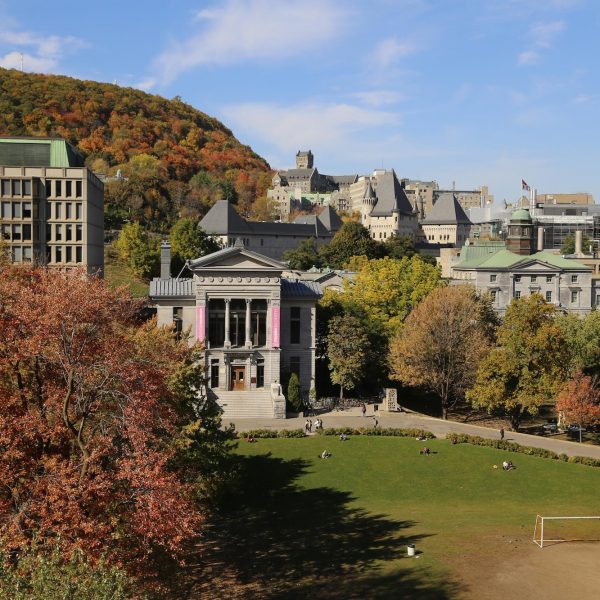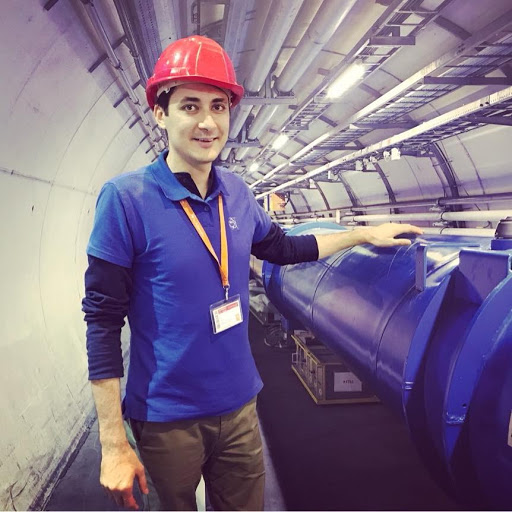Interviews for the TRaCE McGill project began in February 2020 and ended in September 2020. Each of the interviews we’ve selected for publication shares a different perspective on professional pathways for PhD graduates, and our editors worked to choose stories that are distinct from one another in their answers to the questions of where PhDs go after graduation, how, and why.
This week marks the end of our weekly posting of new narrative profiles of McGill PhD graduates. We will continue to share content from our interviews and events over the coming months in different formats. As we look back on the incredible variety of career pathways we’ve showcased, we would also like to take the opportunity to highlight common threads across the conversations our graduate student interviewers had with PhD graduates.
As the interview phase was winding down in September 2020, we invited our graduate student interviewers to come together to discuss what they learned through the interview process, and what they will take from the project going forward. Below, we share a synthesis of their reflections.

Differing experiences and common challenges for PhD students
Interviewers noted that departmental supports and culture strongly influence how supported graduates felt during their programs. One interviewer noted that it was eye opening to see the variety of experiences graduate students had across different departments. While levels of support varied, however, interviewers identified common challenges for PhD students across departments and research fields at McGill university.
Experiencing Setbacks
For one interviewer, conversations with graduates revealed how common it is for PhD students to experience at least one setback during their program. Across our narratives, PhD graduates pursuing experimental research shared their stories of experiments that fail, freezers that break down, research projects that evolve over time, and more. When interviewers asked what advice PhD graduates had to share with their former selves, graduates often emphasized that they wished they had been more confident about their own abilities and/or that they had prioritized work-life balance.

For our interviewers, talking with graduates who overcame setbacks was reassuring; in most cases, things worked out in the end. Hearing how different people handled setbacks and challenges during their PhD also demonstrated that there’s no single, specific way to complete the degree. One interviewer’s takeaway was that a PhD is a personal and subjective process for everyone. As another interviewer commented, a PhD is a journey that teaches you about yourself—one of the most valuable things you gain from it is that you learn about yourself and about what you can do.

Transferable Skills
Interviewers discussed the perception that graduating with a PhD can narrow a person’s career options. Talking with graduates highlighted to some interviewers that a PhD does not limit a person to one career path. Instead, transferable skills acquired during graduate school diversified their employment opportunities across related industry and academic sectors.
PhD graduates we interviewed share how they use their skills in translating research findings for court cases, policy discussions, in business, and for the general public. Some graduates noted that they carried over soft skills and project management skills from their doctoral work into their current careers. Others commented that doctoral research equipped them to be versatile, and to teach themselves new skills.
Finding a Career Path
Across interviews, graduates reported difficulties finding advice on careers outside of academia during their time in graduate school. One interviewer noted that their interviews showcased the growth of McGill’s career planning services for Macdonald Campus students between 2008-2018, but that more support is still needed. Another interviewer commented that while talking to graduates revealed there’s a spectrum of jobs available, job seekers need to be realistic, and should prepare to invest significant time and energy into preparing for a career after graduation.
Graduates working in academia told the interviewers that they wished they had understood better what would be required in a tenure-track job : the day-to-day workload of research, teaching, and especially service were not always clear to them from the outset. Others wished they had been more aware at the start of their PhD studies how competitive the academic job market is, or wished they’d known when they decided to pursue a PhD what their chances of obtaining a tenure-track job might be (see TRaCE McGill’s data on career outcomes for McGill PhDs).
Speaking to several PhD graduates working in industry revealed how diverse the range of career paths and opportunities can be within a single company. The picture of what working in an industry might be like is going to be limited if you’re only looking at it from the outside, one interviewer commented, and it is only by talking to people who actually work there that you can begin to see all the different kinds of work within a single company. One of the key takeaways for this interviewer was to approach industry careers with an open mind.

More Stories Needed
One interviewer noted that our interviews might not capture the full picture of what it is like to transition to a non-academic career because the people who accepted our invitations to be interviewed might be the ones who made the transition successfully. Students undergoing a tough career transition might have declined our invitation. The interviewer wondered whether narratives highlighting successful career outcomes might create in some readers a false expectation that PhD career transitions are always straightforward. In 2020, TRaCE McGill Project Director Prof. Paul Yachnin, also wrote about the risks of under-representing stories of non-academic career transitions for The Conversation. While interviews for TRaCE McGill have ended, our interest in sharing a diverse range of stories—especially stories of career uncertainty or difficult transitions—continues. Any McGill PhD grad with a story to share is invited to share it with us.
Finding Opportunities During PhD Studies
In talking to PhD graduates about the professional opportunities that led to long-term careers, another interviewer’s central takeaway was that your next opportunity as a PhD can come from anywhere. In stories graduates shared, pathways to their current position tended to start in unanticipated ways: workshops they attended, networking they did during conferences, family friends, emailing people on a list, etc. Not all opportunities led in a linear fashion to a full-time job, but pathways to jobs often had their roots in seemingly small opportunities for connection and experience. One interviewer learned from talking to PhD graduates how important it is to “invest in yourself” while you are doing a PhD; to say yes to opportunities and to appreciate your time in graduate school because you can’t predict how things might turn out.
When we asked our interviewers what they found meaningful about the experience of interviewing PhD alumni, several shared that it provided them with a sense of hope and relief. There was hope in talking to so many PhDs who are in careers that they are happy with. There was relief in learning more about the challenges people encounter during their PhD programs and how graduates reflect back on those challenges years later. As one interviewer commented, the hard part of the PhD is taking ownership of the project, but it is also the fun part—you have ownership of your own path and you can create your own opportunities or find new opportunities.
Thank you to the Graduate Student Researchers who shared reflections with us and thank you to Lorna MacEachern (Program Manager, myPath) who facilitated our discussion.






Discussion